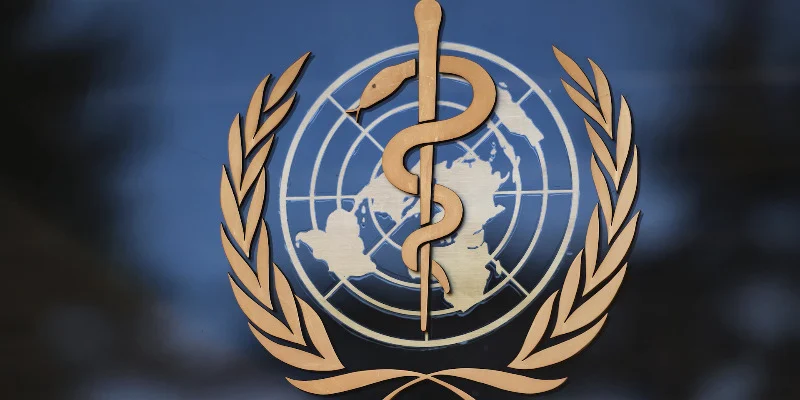Breaking News
70% female students in Nigeria experience sexual harassment — WHO
“In Nigeria, the National Assembly has recently passed the Anti-Sexual Harassment Bill into law. The law seeks to promote and protect ethical standards in tertiary institutions. It also seeks to protect students against sexual harassment, as well as prevent sexual harassment of students by educators in tertiary institutions.”

Following incessant sexual harassment of female students in tertiary institutions in Nigeria, a cluster of Civil Society Organisations; The Anti-sexual Harassment Advocacy Cluster, have joined forces together to launch an Anti-Sexual Harassment campaign, using the some hashtags including #AssentToSexualHarassmentBill, #SayNo2SGBVonCampus, #EndSexualHarassmentonCampus.
According to 2018 World Bank Group survey, 70 percent of female graduates from Nigerian tertiary institutions had been sexually harassed in school, by classmates and instructors.
The research which conducted in 19 tertiary institutions across six states in Nigeria by a consortium of civil society organizations, including CAJA, Social Action, We the People, and led by Youth Alive Foundation (YAF), showed lack of clear reporting channels as one of the discouraging factors to report sexual harassment.
In his analysis to the hindrances of reporting sexual harassment cases, Anti-Sexual Harassment Advocacy Cluster, Kabiru Dakata, disclosed that, 56 percent of respondents disclosed that, there were no clear channels to report sexual harassment in their institutions, and they were unaware of any law protecting them against sexual harassment on campus.
“Lack of a unified law to combat the scourge in all Nigerian higher institutions. Sexual harassment includes unwanted, inappropriate, and offensive sexual advances like repeated and unwanted sexual invitations; insistent requests for dates/dinner/drinks; phone calls, messages, among others solicitation of sexual activity or other sex-linked behavior by promise of reward (overt or subtle), sexual comments, touching the someone’s body, hair or clothes, standing close or brushing up against another person, kissing sounds, howling and smacking.
“By launching the Anti-Sexual Harassment campaign, the Cluster will help toward addressing some of the issues outlined and toward the longer-term objectives of lending its voice toward the Timely Presidential Assent of the Anti-Sexual Harassment Bill, Establishment of Independent Sexual Harassment Prohibition Committee in tertiary institutions and Formation of the “Campaign against Sexual Harassment (CASH)” Club.
“In Nigeria, the National Assembly has recently passed the Anti-Sexual Harassment Bill into law. The law seeks to promote and protect ethical standards in tertiary institutions. It also seeks to protect students against sexual harassment, as well as prevent sexual harassment of students by educators in tertiary institutions.
“Initially, the Bill was sponsored by Sen. Ovie Omo-Agege and 57 other senators in 2016. The 8th Assembly of the Senate (2015-2019) had passed the bill, but it was rejected by the House of Representatives when it was sent for concurrence. However, it was reintroduced to the Senate in “October 2019 (current 9th assembly) by the same senator, two days after a BBC documentary exposed two lecturers of the University of Lagos, and a lecturer of the University of Ghana for sexual harassment. The documentary sparked reactions from many Nigerians who described the issue as a norm in Nigerian universities. The Senate passed the bill in July 2020, and it has been recently passed in the House of Representatives, by way of concurrence with the senate.
“Members of the cluster include Centre for Awareness on Justice and Accountability (CAJA) Kano State, Youth Alive Foundation (YAF) Abuja, Village Debbo Care Initiative (VDCare) Kaduna State, Sefjamil Media and Development (SMD) Kano State, Joint Association of Persons with Disability (JONAPWD), Gombe State Chapter, Women`s Rights and Health Project (WRAHP) Lagos State and Connected Development – Akwa Ibom State (CODE).
“We want to use this medium to solicit the support of the Social Media Influencers, gender-based violence activists and all concerned Nigerians, to support the campaign by promoting the Hashtags to get wider spread on both conventional and social media platforms, to have a Presidential Assent to the bill.
“This Project is supported by the strengthening civic advocacy and local engagement (SCALE) project through the United States agency for international development (USAID). The contents of this message are the sole responsibility of the Anti-Sexual Harassment Advocacy Cluster and do not reflect the views of the United States government.”


















